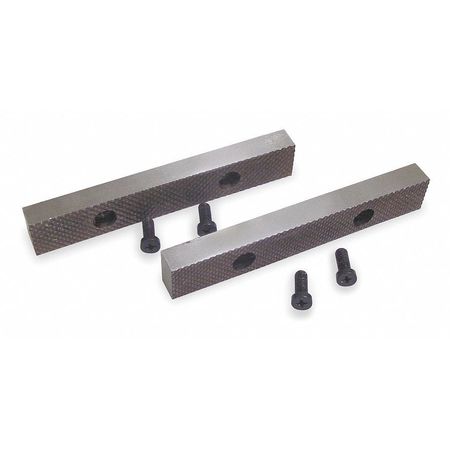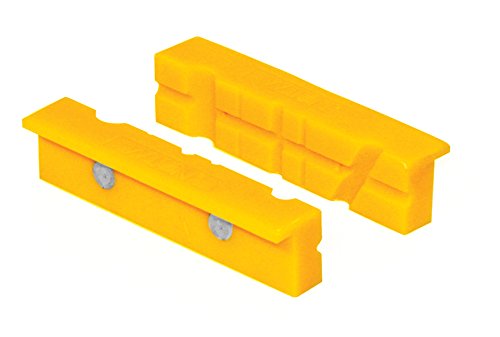A couple things to think about...
Replaceable jaws are great if the surface texture of the jaws is important to the user. The draw back being the inherent weakness in the structure. Generally speaking if the vise has replaceable jaw faces I would pretty much considered it a vise for light work, small hammers, low pressure and little to no heat. Many times the replaceable jaws have enough texture and are hard enough they will easily damage the surface of the work piece. Obviously a set of smooth jaws is an option as is specific type metal jaws for specific types of metal work, plastics as well. Non ferrous jaws for non ferrous work.
A forged one piece vise is a clamping beast made for beating. Bigger hammers and longer pulls. Leathers, coppers and such are laid over(over lays, covers, hide'rs, etc.)the faces when needed if a different vice is not available. If this is not what you are doing with the vise then perhaps look into one that has replaceable "faces". Refacing a "non replaceable face" vise happens just differently. Generally looking for the face to be barely textured if not smooth, prefer smooth.
Ductile iron is a third hand to hold something being filed, lightly threaded, lightly hammered, etc., nothing wrong with that at all. Does not matter who made it or where it was made treat it like forged steel and it will fail. Using cast iron means being careful with heat work and certain chemicals compared to steel. Using tappers instead of wackers.
A forged steel vise will ding, yield a corner, cave a flat during normal use. The are surprisingly "soft" however they are much harder to crack and chipping is rare compared to cast iron. The forge steel is considerably more malleable and ductile than the cast iron for typical vise work, it will yield compared to crack. Overtime, lifetime for most folks, the forged steel work surfaces will work harden and then surface cracks will appear and chunk or chips will zip off will zest. Same applies to anvils. It is really easy to put a big old dent in a forge steel vise, about as easy as it is to crack a cast iron. Dents can be repaired, cracks not so much.
Another difference, every time a vise is loaded it is stressed. You can stress a piece of cast iron a thousand times and the 1001 time it yields, cracks in half. You do not get to see it but it has been building up to that moment from run in. Forged steel going to take way more loads and you might get to see the progression as it will deform as it yields overtime. Supposedly this this characteristic of cast iron is an advantage for a presion bench vise, at least in terms of marketing, it will hold the presion longer or some such thing.
Quick count of "bench" vises shows I own 3 cast, 1 forged and 2 unknowns(supposedly forged). They all work fine, just have to keep track of which one is which. All of the vises shown in this thread look like very nice small bench vises, I would be pleased to own any of them and would find it difficult to pick just one. Build a bigger shop would be my advise.








